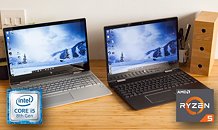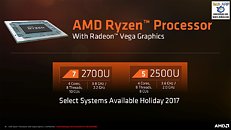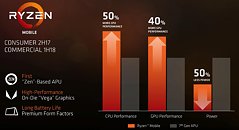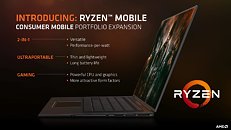Mar 31st, 2025 18:13 EDT
change timezone
Latest GPU Drivers
New Forum Posts
- I'm looking for a good tool to make the 3D scanning of my mini-pc using the photogrammetry and my Kinect 2. (156)
- Bios Mod for an old pc (6)
- can i yust connect 4 pin cpu coler to 5 pin ? (6)
- Sexy Hardware Close-Up Pic Clubhouse. (10272)
- Different Memory type on GPU-Z and BIOS versions on techpowerup (1)
- Help with System Recommendations (2)
- PCB serial number explanation Asrock rx5700xt Taichi oc+ (3)
- Post your 7-Zip v22.01 scores (415)
- Whats the Deal with the 570 nvidia drivers ? (3)
- Technical Issues - TPU Main Site & Forum (2025) (85)
Popular Reviews
- Sapphire Radeon RX 9070 XT Pulse Review
- ASRock Phantom Gaming B850 Riptide Wi-Fi Review - Amazing Price/Performance
- Samsung 9100 Pro 2 TB Review - The Best Gen 5 SSD
- Palit GeForce RTX 5070 GamingPro OC Review
- Sapphire Radeon RX 9070 XT Nitro+ Review - Beating NVIDIA
- DDR5 CUDIMM Explained & Benched - The New Memory Standard
- Assassin's Creed Shadows Performance Benchmark Review - 30 GPUs Compared
- Enermax REVOLUTION D.F. 12 850 W Review
- SilverStone Lucid 04 Review
- AMD Ryzen 7 9800X3D Review - The Best Gaming Processor
Controversial News Posts
- MSI Doesn't Plan Radeon RX 9000 Series GPUs, Skips AMD RDNA 4 Generation Entirely (142)
- Microsoft Introduces Copilot for Gaming (124)
- AMD Radeon RX 9070 XT Reportedly Outperforms RTX 5080 Through Undervolting (119)
- NVIDIA Reportedly Prepares GeForce RTX 5060 and RTX 5060 Ti Unveil Tomorrow (115)
- Over 200,000 Sold Radeon RX 9070 and RX 9070 XT GPUs? AMD Says No Number was Given (100)
- NVIDIA GeForce RTX 5050, RTX 5060, and RTX 5060 Ti Specifications Leak (96)
- Retailers Anticipate Increased Radeon RX 9070 Series Prices, After Initial Shipments of "MSRP" Models (90)
- China Develops Domestic EUV Tool, ASML Monopoly in Trouble (88)
Wednesday, February 28th 2018

Dell CTO On AMD-Powered Products: "Don't Expect a [Intel and AMD] Duopoly"
AMD has been making waves on computing markets with its latest line of processors powered by its innovative Zen microarchitecture. Its strengths and weaknesses are very well known by now, so there's no use harking them all over again; suffice it to say that the company has regained competitiveness - and then some - with many of Intel's products in as many different industry sectors. The company's APU solutions, for one, are one of a kind solutions that allow users to do some very impressive gaming sans a discrete GPU. However, Intel's been spending the last several years before AMD's Zen entrenching themselves in all markets, so AMD clearly has an uphill battle in fighting existing relations and supply channels. Case in point: Dell.
Channel Pro is reporting that Dell EMC's CTO, John Roese, said today at WMC that "Intel is the big player, AMD is the second player. There's enough diversity between them that there are use cases to have them both in our portfolio, but just the sheer breadth of the Intel processor portfolio is massive compared to even the accelerated AMD world."While the executive tips his hat to AMD's recent product launches and forays into products that customers actually desire to have in their computing world, but thinks that that alone isn't enough: "AMD is doing some interesting things, and by adding them to the portfolio we pick up a few extra areas, but let's be very clear: there is a huge, dominant player in compute semiconductors, and then there is a challenger which is doing some very good innovative work called AMD, but the gap between them is quite large in terms of market share and use-cases. So our portfolio is not going to change in any meaningful way." he then finished with a coup-de-grace, saying that users shouldn't "(...) expect it [Dell's portfolio] ]to be a duopoly any time soon." Talk about rewarding the striving underdog.
Source:
ChannelPro.co.uk
Channel Pro is reporting that Dell EMC's CTO, John Roese, said today at WMC that "Intel is the big player, AMD is the second player. There's enough diversity between them that there are use cases to have them both in our portfolio, but just the sheer breadth of the Intel processor portfolio is massive compared to even the accelerated AMD world."While the executive tips his hat to AMD's recent product launches and forays into products that customers actually desire to have in their computing world, but thinks that that alone isn't enough: "AMD is doing some interesting things, and by adding them to the portfolio we pick up a few extra areas, but let's be very clear: there is a huge, dominant player in compute semiconductors, and then there is a challenger which is doing some very good innovative work called AMD, but the gap between them is quite large in terms of market share and use-cases. So our portfolio is not going to change in any meaningful way." he then finished with a coup-de-grace, saying that users shouldn't "(...) expect it [Dell's portfolio] ]to be a duopoly any time soon." Talk about rewarding the striving underdog.
Mar 31st, 2025 18:13 EDT
change timezone
Latest GPU Drivers
New Forum Posts
- I'm looking for a good tool to make the 3D scanning of my mini-pc using the photogrammetry and my Kinect 2. (156)
- Bios Mod for an old pc (6)
- can i yust connect 4 pin cpu coler to 5 pin ? (6)
- Sexy Hardware Close-Up Pic Clubhouse. (10272)
- Different Memory type on GPU-Z and BIOS versions on techpowerup (1)
- Help with System Recommendations (2)
- PCB serial number explanation Asrock rx5700xt Taichi oc+ (3)
- Post your 7-Zip v22.01 scores (415)
- Whats the Deal with the 570 nvidia drivers ? (3)
- Technical Issues - TPU Main Site & Forum (2025) (85)
Popular Reviews
- Sapphire Radeon RX 9070 XT Pulse Review
- ASRock Phantom Gaming B850 Riptide Wi-Fi Review - Amazing Price/Performance
- Samsung 9100 Pro 2 TB Review - The Best Gen 5 SSD
- Palit GeForce RTX 5070 GamingPro OC Review
- Sapphire Radeon RX 9070 XT Nitro+ Review - Beating NVIDIA
- DDR5 CUDIMM Explained & Benched - The New Memory Standard
- Assassin's Creed Shadows Performance Benchmark Review - 30 GPUs Compared
- Enermax REVOLUTION D.F. 12 850 W Review
- SilverStone Lucid 04 Review
- AMD Ryzen 7 9800X3D Review - The Best Gaming Processor
Controversial News Posts
- MSI Doesn't Plan Radeon RX 9000 Series GPUs, Skips AMD RDNA 4 Generation Entirely (142)
- Microsoft Introduces Copilot for Gaming (124)
- AMD Radeon RX 9070 XT Reportedly Outperforms RTX 5080 Through Undervolting (119)
- NVIDIA Reportedly Prepares GeForce RTX 5060 and RTX 5060 Ti Unveil Tomorrow (115)
- Over 200,000 Sold Radeon RX 9070 and RX 9070 XT GPUs? AMD Says No Number was Given (100)
- NVIDIA GeForce RTX 5050, RTX 5060, and RTX 5060 Ti Specifications Leak (96)
- Retailers Anticipate Increased Radeon RX 9070 Series Prices, After Initial Shipments of "MSRP" Models (90)
- China Develops Domestic EUV Tool, ASML Monopoly in Trouble (88)




43 Comments on Dell CTO On AMD-Powered Products: "Don't Expect a [Intel and AMD] Duopoly"
This is from the Intel mail excange with dell when Paul S. Otellini wanted to bury AMD. It seems Dell has not changed one bit , still Intel's little bitch.
So .... not a single thought as to what market share consists of, such as more products available with their components in various categories? I suppose that would be too challenging a thought.
Dell's statement here doesn't really make any sense either. If anything, EPYC makes sense in more configuration than Intel does. After all you can pack more cores in less space with EPYC and the performance per watt is fantastic. I don't get how "Intel is top dog" is an excuse dell can make. That's an explanation berift of details as I'd expect from a 5 year old.
I'm guessing the real reason Dell is keeping a mostly Intel portfolio is because it's a safer choice. No change is required and everyone knows the Intel brand.
While more cores is good to certain uses, raw frequency is still king in more things, so your point asbout Epyc being so useful kind hints that perhaps you aren't thinking of the entire market like Dell is.
Don't get me wrong; I'm not here to defend Dell's business practices. As a person that gets my hardware for free, I don't care who is better... I have both. And frankly, since it's my job to really evaluate who is better by actually using all this hardware, I kind of have to agree with Dell's apparant stance here. AMD has some great options, but they aren't the BEST in many situations. It's too bad too, because until AMD really does have those products, the consumer is subject to Intel's pricing setting the stage for the entire market.
So, AMD wins only in two scenarios... high core counts, and with APUs. Unfortunately those are the edges of the usage spectrum, and the majority of needs fall between AMD's strong points.
Their proprietary PSU's were trash. It was trash that half of the systems used a proprietary 24pin connector. PSU was JUST enough to run what was in the system and that was it.
Their higher end systems weren't too bad, especially that they ended up taking Alienware. But even then, they can be pricier than what you really get out of it. Unless you wait till a major sale and call in to state you want to buy something but you are just too poor for it, so they give an additional 10% off or so.
AMD now, especially with their new APU's, should be looked at for average office user and or home user. Yeah, wont high end game, but its still ideal for light gaming and everything else. Want to game? Add in a GPU and away you go. I would figure OEM's would be all over it, especially dell. But I assume its because they want to continue to use the cheapest of OEM production of their motherboards and don't really want to shell out too much on other socket.
I may be over thinking this and maybe just going into a tirade over it for little reason. But its just a head scratcher.
If you can afford the cost, and live in North America, I will always recommend buying a Dell panel. I've personally used their warranty service... called them up, and the very next day I had a replacement on my doorstep. Less than 24 hours later... much closer to like 12 hours, if I'm honest. That experience won me over when it comes to Dell.
As to bad hardware, every brand has such cases.Well, you see, AMD's Ryzen platform still has some memory compatibility issues, meaning that PC builders have to have the right memory in stock to even be able to sell such systems, and that memory is getting quite rare, and expensive. Also, PCs that can game aren't meant for the office from many people's perspective. Dell doesn't really cater to true enthusiasts, so I totally understand your poinion here, but as enthusiasts, we can't exactly judge a company on ethusiast merits when that isn't even the part of teh market they offer products for.
No need to shillply. Intel is scared of losing their cash cow and is feeding this twat stacks of cash.
Back when AMD actually had the fastest processor in the world, i didn't knew much about hardware, and all I wanted was a intel pc, because that was the stuff that i was seeing on TV. I never saw an ad saying "the athlon +xxxx is the fastest thing that you can get". They could have turned the P4 "BigGhz" marketing at their advantage, by showing that they could do more at a lower speed, but it never happened. People kept buying P4 because on paper they appeared to be be faster. (And dell didn't really helped either)
AMD wins in more than 3 situations
- Higher core density. AMD can fit more cores into less space. A dual socket AMD system outfitted with AMD's best CPU has 12 more cores than a dual socket Intel system fitted with Intel's best processor.
- Better performance per watt
- AMD processors have better performance per dollar. AMDs top of the line 7601 is HALF THE PRICE of Intel's top of the line 8180 and it has 6 more cores. This should be three points, because that's $5,000 in savings per CPU and you are getting more performance
- Of course, as you stated, their APUs are far better. AMD did after all make the nearly all the console's APU chips.
Intel literally wins in one situation, gaming, and even to get the best performance you have to delid your CPU, buy an expensive cooler, and an expensive motherboard. AMD consumer CPUs come out of the box with an excellent cooling solution. Even then, you need to have a 144 Hz monitor or greater to notice it. Heck I have a 144 Hz monitor with a Ryzen 1700 and it performs perfectly.
So yeah... if you want to take that angle, you need expensive ram for Ryzen, and the cost of that ram offsets anything that Intel might cost you extra.
You don't need to delid, or buy an expensive cooler with Intel. That's marketing BS that I know better than to listen to. I'm very shocked to see some members touting this line like it's gospel as it really shows how easily the market can be manipulated by heresay.
I have both AMD and Intel systems running. For most, there is little difference to be noticed, and that saves face for AMD, but it's not exactly as you want to portray it, really. I mean, if AMD was better, I'd simply say so. but at this point I cannot.
Like hell This old ass Thinkpad R61i beats the crap out of the poss e-450
HPE pushed out the microcode on Jan 4th...
wiki.ubuntu.com/SecurityTeam/KnowledgeBase/SpectreAndMeltdown/TechFAQ#Retpoline
Intel meanwhile has patched and unpatched several times now with severe performance hits... but sure they handled things equally well..........Intel still dominates in AVX2 performance, and can do 4p setups, Intel still owns the high end, but yes AMD is very competitive now. When I saw the roadmap with the specs 2 years ago I got excited... just from the raw specs I knew they would win certain workloads and be competitive across most of the rest. Rome should be interesting... it has to compete against cascade lake and optane dimms.